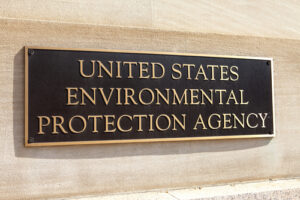
U.S. Rep. Buddy Carter (R-GA) on March 13 led more than a dozen of his Republican colleagues in introducing legislation that would update the process for setting National Ambient Air Quality Standards (NAAQS) while ensuring they’re feasible for states and future economic development projects.
The congressman sponsored the Air Quality Standards Implementation Act of 2024, H.R. 7650, alongside 14 original cosponsors to reform the process used by the U.S. Environmental Protection Agency (EPA) to establish and implement the NAAQS.
“The Clean Air Act was established to enhance American productivity, not kill it, and we must ensure that NAAQS implementation does not prevent economic growth and development,” Rep. Carter said. “This bill reflects 40 years of experience implementing air quality standards and will ensure that both EPA and states have time to do this the right way.
“America has the best environmental standards and economic potential in the world, and this bill will make sure it stays that way,” added Rep. Carter.
The EPA in February announced its final rule tightening NAAQS for fine particulate matter (PM2.5), reducing the current standard of 12 micrograms per cubic meter of air to 9 micrograms, a move that Rep. Carter and his colleagues say is highly restrictive and threatens up to one million jobs and $197.4 billion in economic activity.
If enacted, H.R. 7650 would address such concerns by ensuring that the new PM2.5 standards don’t take effect until an implementation plan is developed and practical permitting reforms are made to increase the efficiency of state implementation of the new standards, according to a bill summary provided by Rep. Carter’s staff.
Among several provisions, H.R. 7650 also would dictate a predictable timeline of review for NAAQS; ensure the attainability of a NAAQS is considered; and ensure that actions to mitigate wildfires, such as prescribed burns, are not penalized by the EPA, the summary says.
Additionally, the bill would not allow states to be punished for emissions beyond their control and would bolster the role of states in the scientific advisory process of the NAAQS.
Among the 14 original cosponsors of H.R. 7650 are U.S. Reps. David Valadao (R-CA), John Joyce (R-PA), Dan Newhouse (R-WA), Andy Barr (R-KY), Jay Obernolte (R-CA), August Pfluger (R-TX), Troy Balderson (R-OH), and Bob Latta (R-OH).
“Washington should be making it easier for businesses, local governments, and others to implement and comply with federal regulations, not constantly moving the goalposts with unreasonable deadlines,” Rep. Valadao said. “Having an EPA national air quality standard that states are able to easily implement is critical to improving both air quality and the everyday lives of those suffering from respiratory diseases like asthma.”
Rep. Newhouse said that the Biden administration’s “irresponsible rule” on fine particulate matter harms rural producers in every industry.
“This bill takes important steps to empower states to implement standards, rather than giving unelected bureaucrats in Washington, D.C., even more power to control our lives,” he said. “I thank Rep. Carter for his leadership on this issue and encourage support for this bill going forward.”
The EPA’s revised standard on PM2.5 will drive American manufacturing overseas to countries that don’t follow sound environmental guidelines, said Rep. Barr, who added that H.R. 7650 will provide the regulated community with certainty and extend the mandatory timeline the EPA has to review air quality standards.
The measure also “will keep high-paying manufacturing jobs in America, bolstering our supply chain and ensuring America will remain competitive with Chinese manufacturing,” Rep. Barr said.
Rep. Obernolte agreed, noting that the EPA’s final rule would limit domestic manufacturing, forcing companies to purchase from overseas manufacturers where environmental standards are lower than those in the U.S., making global air quality worse.
“The Air Quality Standards Implementation Act will ensure these new regulations are economically feasible, environmentally sound, and safeguard American manufacturing from being decimated,” said Rep. Obernolte.
“The EPA has gone way too far with their new standards for fine particulate matter,” Rep. Balderson said. “Federal regulations must be, at a bare minimum, attainable and economically feasible for manufacturers to meet.”
Rep. Balderson added that H.R. 7650 will “right-size these rules” and correct the implementation timeline so that companies will have adequate time to properly plan and prepare.
Rep. Latta said he’s “proud to join Rep. Carter in pushing back against EPA’s overreaching attempt to hamper American energy and hamstring the manufacturing sector.”
“EPA continues to cast uncertainty over the energy and manufacturing industry, chilling investment in American companies to the benefit of our foreign competitors,” Rep. Latta said.
H.R. 7650 has been referred for consideration to the U.S. House Energy and Commerce Committee, where chair U.S. Rep. Cathy McMorris Rodgers (R-WA) commended Rep. Carter for his leadership on the bill.
“For decades, America has been the best place to do business, while also maintaining the highest environmental standards in the world. That is why today, air quality in the U.S. is the best in the world — and getting better,” she said. “We should be building on this success with reasonable solutions that appropriately balance protecting our public health with ensuring America continues to maintain its economic leadership.”



